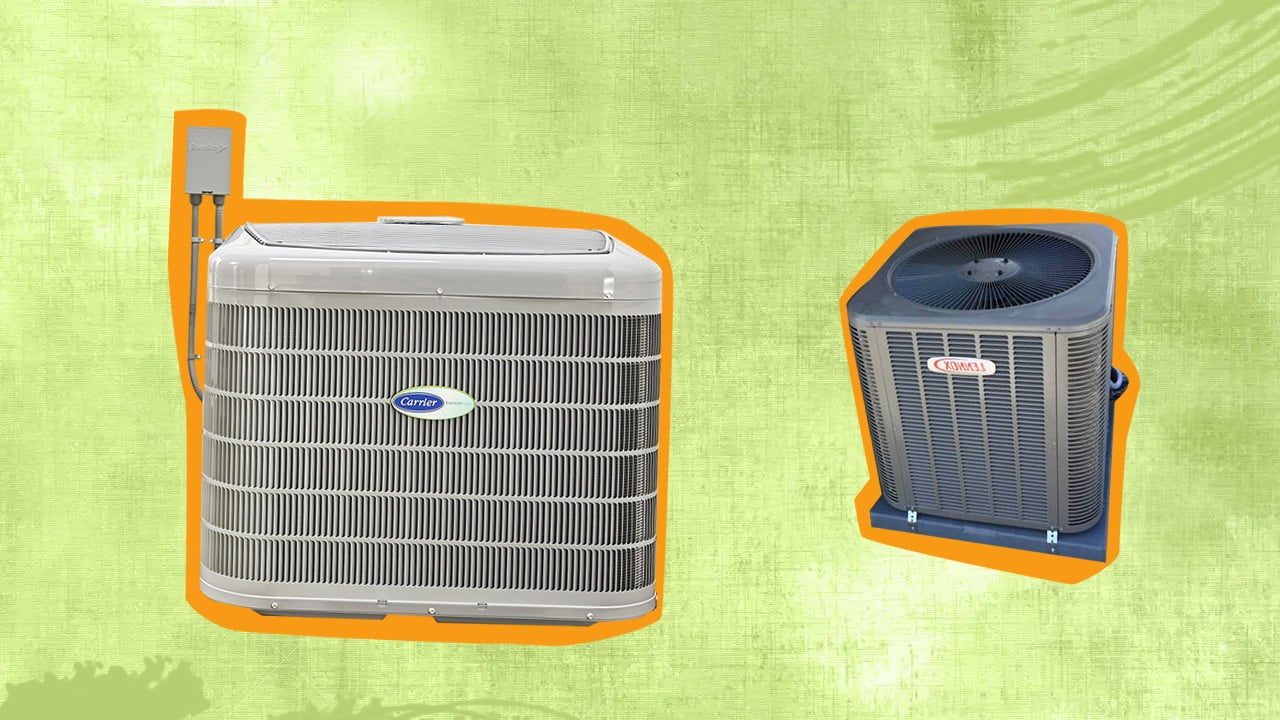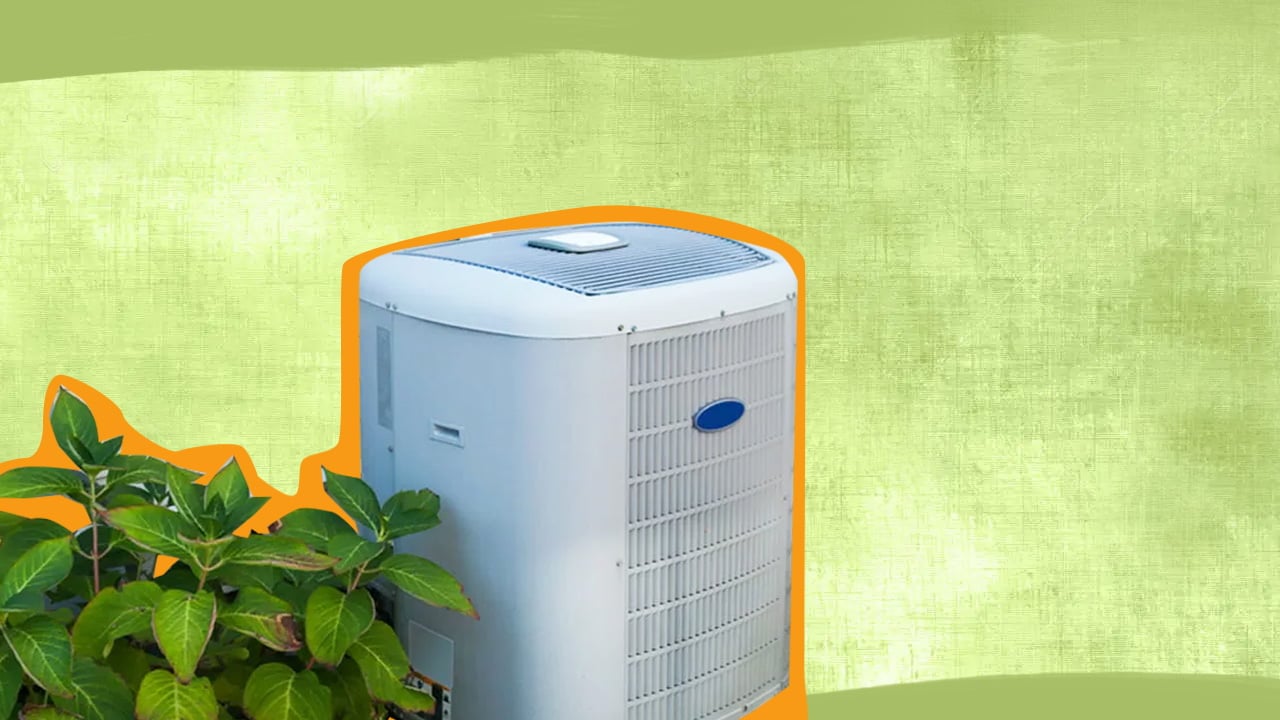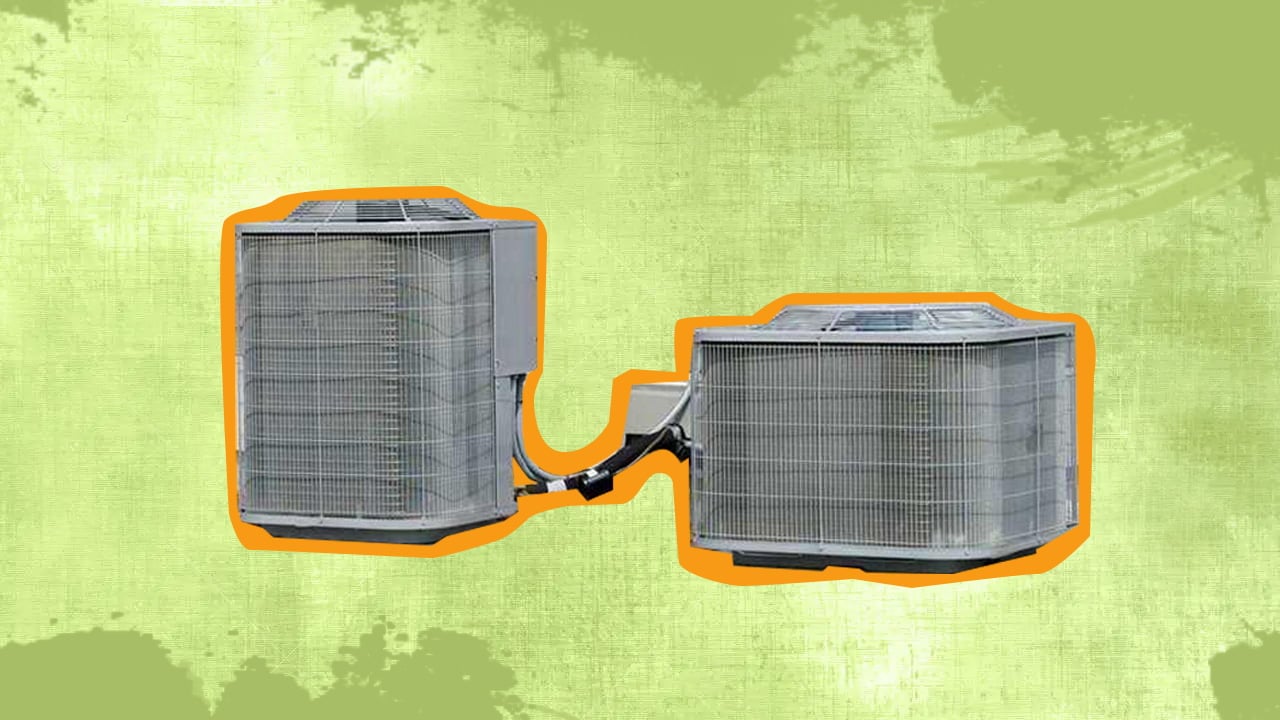The average life of an AC decreases considerably when you skip maintenance and neglect early signs of damage. On the other hand, a well-maintained AC can last for 10-15 years or longer, saving you the hassle of costly replacements.

The longevity of AC units depends on several factors like installation, location, hours of operation, etc., so it's challenging to provide a definite answer. As the HVAC industry is constantly innovating and producing new models, not opting for timely repairs can render your old model obsolete.
To prevent additional costs and enjoy the pleasant cooling of your AC, read my guide as I look at various factors affecting the lifespan of HVAC units.
Factors That Influence The Average Lifespan Of An Air Conditioner

1. Climate Conditions
The area in which you live can affect the lifespan of the cooling system since air conditioners are prone to wear and tear after regular use. Added to that, the summer season takes a toll on an AC unit due to the extreme heat, intense winds, air pollution from cars, and high humidity in the air.
An outdoor unit can experience severe damage, making routine maintenance a priority. Usually, in warmer climates, an air conditioner can last 10-15 years, depending on how you use it.
2. Regular Maintenance
Since your AC system is responsible for blowing cold air and improving indoor air quality throughout the year, regular maintenance is essential. With proper maintenance, the air conditioning system will perform at optimum capacity and last for many years.
Moreover, a professional air conditioner service fixes even the smallest problems before they become serious, reducing the need for costly repairs in the future. Through these services, qualified technicians clean and replace the air filters, inspect critical parts and perform multiple tests.
While the average lifespan of an air conditioning unit is 15-20 years, well-maintained units can last longer. However, I can't conclusively state how long air conditioners will last as every machine is different.
When To Replace Your Air Conditioning System?
When your existing system shows one or more of the following symptoms, you must opt for air conditioner replacement.
1. Higher Energy Bills
One of the most common signs that the life expectancy of your air conditioner has run out is when you get higher energy bills. Since old air conditioners have to work twice as hard to deliver the same cooling, they consume more power, which results in higher electricity bills.
You can get the AC serviced by hiring an HVAC professional, but when the problem persists, switch to a new AC unit ASAP to lower utility bills.
2. Frequent Repairs
An air conditioner does require regular tune-ups, but the problem arises when you must make expensive repairs frequently. This is a sure sign that the air conditioner lifespan is nearing its end, and it's time to make an investment in a new air conditioning system.
Moreover, hiring an HVAC technician for repairs can be expensive, especially if the components break down sooner than expected. So, using a new air conditioning unit will prove more cost-effective.
3. Reduced Cooling Capacity
If the air conditioner is blowing cool air but struggling to lower the temperature of the room, it would be best to opt for a replacement. Contact a professional service to see if they can fix the issue. If not, don't hesitate to get the latest AC unit to withstand the warm summer months and prevent health issues.
Factors Affecting The Performance Of AC Units
Some of the factors that impact the expected lifespan of an air conditioner include -
- Personal preferences
- Daily wear and tear
- Thermostat settings
- Quality of installation and sizing
- Impure air, especially corrosives and salty sea air
- High humidity and unpredictable climate
- Maintenance of the old system
- Debris stuck in the duct
Among these, I have shortlisted the three most important factors and explained them in greater detail.
1. Upkeep
Even when air conditioners work fine, you can't afford to be complacent. Don't wait for problems to occur before calling a licensed technician to check the evaporator coil, compressor, or water leaks. Also, make sure to keep the outdoor unit free of leaves, debris, mulch, etc., to guarantee efficient energy use.
In most cases, you can replace and clean the air filter of HVAC systems, but a professional can fine-tune more complicated components. For instance, they remove and inspect the fan motor, condensate drains, and condenser coils while making minor adjustments to prevent bigger issues.
2. Manner Of Use
Though most people wonder how long AC units last, a more relevant question might be how long do air conditioners last in certain parts of the country. Given the temperature difference and varying climatic conditions between the northern and southern parts of the United States, the impact on air conditioners is different.
You will agree that an air conditioner used more than average will wear out faster. So, since the North has moderate summers, people are less likely to run their AC units for longer, leading to fewer start-stop cycles.
But in places like Florida, where summers are hot and humid, HVAC units may not last as long. Moreover, personal preference plays a big role because changing the thermostat temperature by a few degrees can affect output.
3. Natural Elements
Since the air conditioner condenser is an outdoor unit, it's exposed to the natural elements, which increases the cost of the energy bill. Although it can withstand the outdoor elements to an extent, salty sea air or high humidity can adversely impact HVAC systems.
I recommend cleaning the air conditioner's condenser coil regularly to remove debris and corrosive elements. Also, physically remove leaves and other items accumulating around the unit to prevent moisture from being trapped inside.
You can do what I did and purchase HVAC system covers to help conditioners last longer. But there is an element of risk involved because plastic covers trap moisture and could lead to corrosion. Hence, cover only the top of the air conditioner or use a cover with a breathable material to prevent mold.

Extending The Lifespan Of A HVAC System
1. Installation
Poor installation can reduce the average life expectancy of the air conditioner. At the time of installation, hire qualified personnel for assembly if you don't have experience setting up an HVAC system.
Although this will cost more money, you can rest assured that all the components will be installed correctly to prevent issues or unforeseen damages. And always ask the AC company about the product warranty.
2. Tune-Up
Like with other home appliances, a regular check-up is necessary to increase the life of your air conditioner. The best part is that most air conditioners don't require costly or high maintenance, as timely servicing works wonders.
As a rule, get the air conditioner and furnace cleaned and inspected yearly. You can schedule the air conditioner maintenance in spring and the furnace in early fall. Also, ask the professionals to simply replace worn-out parts like the air filter with new components to get pure, conditioned air.
3. Air Filters
Irrespective of whether you have a new system or an old unit, cleaning the air filters is vital to increase the average life of an HVAC unit. Most filters last between a few weeks and 3 months, and you can clean or replace them yourself.
When air filters become dirty, the air conditioner suffocates, and the unit has to work extra hard to deliver the same cooling. This is where a smart air conditioner proves useful, sounding an alert when it's time to clean the machine.
4. Inspecting The Outdoor Unit
Inspect the outdoor unit at regular intervals to remove debris like stones that can lodge inside it. If left unchecked, the debris can affect the normal functioning of the unit, interfering with the fan or resulting in leaking pipes.
Other signs of a malfunctioning unit include leaking refrigerants, which means something serious is wrong with the air conditioner. The bottom line is just you shouldn't neglect the outdoor unit just because it's out of sight.
5. Auto Mode
If possible, use the air conditioning in auto mode, which guarantees effective cooling without increasing energy expenditure. In auto mode, the AC operates as per your requirements instead of running at full blast or a constant speed.
The auto mode ensures the fan operates at a moderate speed, reducing strain on the machine.
6. Switch To Other Appliances
Instead of using the HVAC unit continuously, you can use other appliances to maintain a pleasant temperature in the room. Using the AC and ceiling fan in tandem can reduce the load on both units while increasing energy efficiency.
By running the ceiling fan along with the AC, air circulation increases, and you can operate the AC at a lower setting. But if you don't have a ceiling fan, add thick curtains or reflective films over the windows to regulate temperature.
7. Smart Cooling
You can always upgrade your AC and use smart cooling technology to make the unit more efficient. Smart controllers equip the AC with extra features, such as WiFi, so you can control it via remote. Plus, people can schedule when to run the AC and what humidity or temperature range they prefer.
Some modern units have a filter status to provide live updates regarding the air filters' condition and performance. This will help you schedule a maintenance service ASAP.
Tip
Upgrade the insulation to get the most out of the air conditioner. Proper room insulation ensures the cool air isn't lost, and the AC doesn't have to work twice as hard to reach the desired temperature. As a result, the components remain in good shape for far longer due to less strain on the unit.

Conclusion
I hope you now know more about how long air conditioners last after reading my guide. The most important aspect is not neglecting the tell-tale signs and getting even minor issues inspected quickly.
Also, don't listen to common myths surrounding air conditioners and leave the AC running 24/7. This is a sure-shot way of reducing the lifespan of HVAC systems, and it would be better to run a cooling system for a few hours before turning it off.

